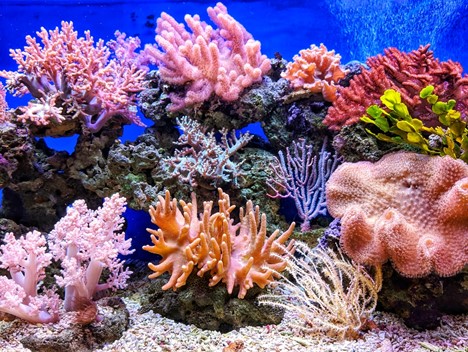By: Alden Campo, Staff Writer
A recent proposed amendment to the Lacey Act, found in the America COMPETES Act, Section 71102, could be devastating to thousands of businesses and millions of pet owners if passed.[1]The proposed amendment, which was added to the America COMPETES Act by Representative Rick Crawford, would add language to the Lacey Act which would essentially create a “whitelist” of pets which are acceptable to be owned and traded, as well as restricting the ability of pet-owners from transporting their pets across state lines.[2]
The Lacey Act was the first federal law enacted with the goal of protecting wildlife, passed originally in 1900; under the Lacey Act, it is unlawful to import, export, sell, acquire, or purchase fish, wildlife, or plants that are taken, possessed, transported, or sold in violation of US Law. [3] Violation of the Lacey Act is a criminal offence, with the Act enforcing both civil and criminal penalties upon those who violate it. [4] The law covers all fish and wildlife, and plants protected by the International Trade in Endangered Species of Wild Fauna and Flora, also known as the CITES Treaty, as well as plants prohibited by additional amendments from 2008.[5] Ultimately, the law serves to regulate the import of any species protected by international or domestic law and works to prevent the spread of invasive and non-native species deemed to be injurious.[6] However, the proposed amendment would restrict the trade and transport of exotic pets all throughout the United States, and would largely accomplish something which could be much more effectively accomplished through local, State mandates. [7]
The purpose of the proposed amendment is to help prevent damages caused by invasive species introduced by importation via the exotic pet trade. However, the language of the amendment itself is incredibly restrictive, prohibiting the importation of any species of “wild mammals, wild birds, fish (including mollusks and crustacea), amphibians, or reptiles, or the offspring or eggs of any such species, that is not native to the United States” with all of these terms more widely defined to essentially restrict importation of any and all undomesticated animals into the United States.[8] There are two proposed workarounds to this restriction, ultimately hinging upon the generation of a “whitelist” of acceptable species that would be created by the Secretary of the Interior.[9] While restrictions are currently based upon a blacklist of species not permitted due to their potentially injurious nature, a whitelist would be far more restrictive, making it so only set species are permitted, as opposed to all but those marked as explicitly injurious. This change in restrictions would have disastrous effects upon the pet trade, with the marine aquaculture industry in particular potentially suffering losses of half a billion dollars.[10]
Additionally, taking this matter of regulation out of the hands of the states will lead to irrational “blanket bans.” Much of the worry with invasive species is primarily centered around protecting the fragile environment of Florida, where the semi-tropical climate and access to both the Gulf of Mexico and Atlantic Ocean makes it far more likely for non-endemic species being able to take root.[11] However, a fish or reptile which may pose a risk in Florida as a possible invasive species likely poses no such threat in most if not all of the other 49 US States. A blanket ban takes the control out of the hands of the states and places it in the hands of a government that will necessarily need to consider the United States to be a single climate zone, something which is entirely irrational.[12]
The law of unintended consequences always applies, and even if an Act is passed with the intent of doing good for the environment, a great deal of unintended harm, both social and environmental, may be caused. The global aquaculture and mariculture industry provides a positive livelihood for many communities in Oceania, building ties between coral reefs and communities by generating a monetary tie between the two. If imports are banned, these communities will return to their economic activities they had practiced prior to adopting aquaculture; rather than working alongside reefs to grow corals and encourage fish populations for export, the communities will turn back to mining the reefs for limestone and fishing commercially for consumption, options far more destructive to the environment, and far less beneficial economically for the communities.[13][2]
[1] https://usark.org/wp-content/uploads/2022/01/2022-HR4521-excerpt.pdf
2 https://rules.house.gov/sites/democrats.rules.house.gov/files/BILLS-117HR4521RH-RCP117-31.pdf
3 https://www.fws.gov/international/laws-treaties-agreements/us-conservation-laws/lacey-act.html
4 https://www.fws.gov/le/pdffiles/Lacey.pdf
5 Id.
6 Id.
7http://www.leg.state.fl.us/Statutes/index.cfm?App_mode=Display_Statute&URL=0300-0399/0369/0369.html
8 https://rules.house.gov/sites/democrats.rules.house.gov/files/BILLS-117HR4521RH-RCP117-31.pdf
9 Id.
10 https://usark.org/2022lacey/
11 https://www.invasivespeciesinfo.gov/us/florida
12 https://www.invasivespeciesinfo.gov/us
13 https://pacificeastaquaculture.com/blogs/coral-farming-in-the-solomon-islands
